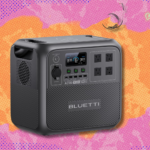By Elizabeth Adegbesan
The time many schools grandstand that no student is allowed to stay in class without having paid their fees fully is over.
Such schools, particularly those located in areas populated by low-income earners, will fold up immediately.
The present economy does not support such hard-stances school administration anymore. And, most schools that actually understand the environment they are operating in, have improvised accordingly.
Like we say in local parlance, the situation Nigerians find themselves now, warrants that everybody must borrow sense.
Some sharp schools have just done that. They have introduced the Esusu method of paying school fees.
It sounds funny, but they are getting by, pretty well with it.
Esusu is a local Nigerian word for thrift.
It is a system where particularly, low-income earners, market women and artisans pool together their meagre resources for a period of time and draw it when it must have accumulated, to be able to carry out a project or solve a problem.
That is the method some schools have adopted to help parents cope with fees payment in an economy where average income earners are living from hand to mouth.
Some parents who spoke to Economy&Lifestyle painted pathetic pictures of what they go through to see their wards through schools, and a few schools they approached seemed to understand.
Mrs. Met Omosefunmi, a private school teacher, said:”Some schools accept school fees daily.
As the child is coming to school, and the parents know they cannot afford termly payment of school fees.
“In a school I served in Muwo, when the management saw the predicaments of parents due to what the economy had become. They introduced the Esusu style of collecting school fees.
“They made small cards with months and days available to parents.
“The wards come to school with the cards and their amount they are paying for the day and it is ticked to show parents.
“The children are given the cards when going home to avoid misplacing them.
“If such a means is not adopted parents will move their wards to other schools, you know things are very difficult and they cannot really afford paying the fees so they take such a child to a public school.
“There is also a new school in my area that is runned like a public school. The fees are very low. As low as N3500 per term for a child in primary level and N5,000 for the Secondary level. The population is very large and their branches as well.
“They also use the esusu method.”
However not all that is good for the goose is good for the gander.
A parent without an up to date Tax Clearance certificate might not be able to register the child or children in public schools in some states as part of the school requirements.
Mrs Ogbonna Victoria, a senior secondary school teacher said:” The rate at which parents are withdrawing their children because of increased school fees is alarming.
“Most of them take the children to public schools where they pay no school fees but register with basic requirements like tax clearance certificates among other things. “If a parent can afford the school fees, but can meet up with payment only thrice he informs the school management.
“My son’s school for instance after losing over 15 pupils, the management had to reconsider esusu after a parent introduced it in one of the Parents Teacher Association meetings.
“The high cost of living is making everyone cut costs, including in areas of education. “Gone are the days when parents sought good and expensive schools for their wards.
“Now, the children should just leave home to study.
“It doesn’t matter whether it is a private or public school.”
Mrs. Amanda Lawrence, a hair stylist, said she had to change the school of her two-year-old daughter after the fees was raised ti N50,000 per term from N35,000 and the management insisted on termly payment.
“The way things are heading in this economy is alarming.
“When I attended school, I was paying N5,000 per term in primary school. Now our education system has degraded and the schools are still increasing school fees.
“My sister had to take her children to a government secondary school in Surulere, when their school fees were increased to N60,000 per term from N45,000 and the school refused the Esusu method.
“This term I changed the school of my two year old daughter when her old school increased her school fees to N50,000 per term from N35,000 and refused the Esusu method.
“In her new school you can pay four to five times or weekly like esusu in a term but you will sign a legal agreement on such terms.
“This is what many schools are doing now to ease the burden of debt and avoid less patronage in the case of insisting on full payment at once .
On her part, Mrs. Grace Ohaleke, a public school teacher said:” My children are in public schools today because I had to convince my husband to withdraw them from their former school that was a private school because they refused the Esusu method of fees payment without considering the amount of children I had.
“Many schools are coming up with school fee payment methods to keep and increase their students. “The esusu is the most adopted style which also enables them to pay teachers on time too.
“My son was in Junior Secondary School three (JSS3) then.
“I told him I cannot pay ridiculous fees to a school that doesn’t even have quality teachers.
“In public schools, you can never see a teacher that is not qualified in teaching.
“We have the best and no one can deny that.
“My son was first ashamed when they started but as time went by he got used to it and is happy.
“Parents in this present economy, no longer look at what people will say or do for their actions.
“They go for what will give them peace of mind and enable them to save for other expenses.”
The post Tough Economy: Schools now accept payments in Esusu style appeared first on Vanguard News.





